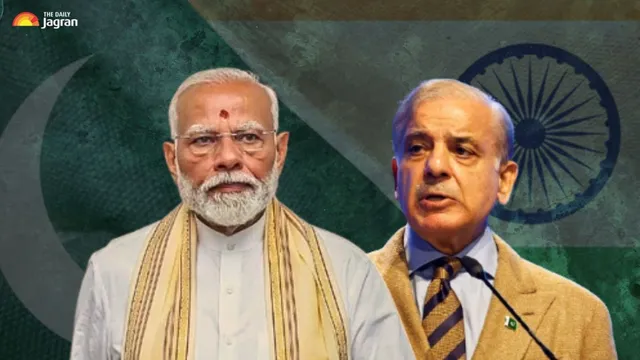- By Supratik Das
- Mon, 01 Sep 2025 03:21 PM (IST)
- Source:JND
Shehbaz Sharif SCO 2025: The Shanghai Cooperation Organisation (SCO) Summit in Tianjin on Monday witnessed sharp exchanges between India and Pakistan. Pakistan Prime Minister Shehbaz Sharif on Monday used the SCO platform to press member states to respect bilateral treaties, including water-sharing agreements. In his address to the SCO plenary session, Sharif raised concerns over India’s recent decision to suspend the Indus Waters Treaty following the April 22 terror attack in Jammu and Kashmir’s Pahalgam that killed 26 people. “We expect SCO member countries to follow all bilateral treaties. Uninterrupted access to due share of water as per existing treaties among SCO members,” Sharif said, indirectly referring to New Delhi’s move. Islamabad has repeatedly expressed alarm over India’s suspension of the treaty, which allocates nearly 80 per cent of the Indus river system’s waters to Pakistan. Sharif’s remarks reflected Pakistan’s unease over what it terms a unilateral action that threatens its water security.
Earlier in April, PPP chairman Bilawal Bhutto-Zardari issued a dire warning, saying that “blood would flow in rivers” if India cut off Pakistan’s water supply. His statement followed New Delhi’s announcement of suspending the treaty in the aftermath of the Pahalgam attack. New Delhi has repeatedly accused Pakistan of sheltering and financing terror groups, including the Lashkar-e-Taiba proxy, The Resistance Front (TRF), which claimed responsibility for the attack. For Pakistan, the suspension of the treaty represents a significant setback, given its heavy dependence on the Indus river system for agriculture and drinking water.
India's Stance Over Water Dispute
In July, Prime Minister Modi had already signalled his government’s intention to review the pact. Speaking during a special discussion on “Operation Sindoor,” he described the Indus Waters Treaty as “Nehru’s biggest blunder.” “The Indus Water Treaty was Nehru’s biggest blunder. He knew a kind of diplomacy that had no place for India’s farmers. They gave away 80 percent of the water to a country that openly calls itself India’s enemy. And successive governments did not correct this mistake,” Modi said.
Under the treaty, brokered by the World Bank in 1960, India was granted rights over the eastern rivers, Ravi, Beas, and Sutlej – while Pakistan received the larger share, including the Indus, Jhelum, and Chenab. India retained limited rights for irrigation and hydropower projects on the western rivers, but Pakistan was allocated nearly 80 per cent of the total water flow. “We were left with only 20 per cent of the Indus River system. Our farmers have suffered because of this historic mistake. But we have made it clear now that blood and water cannot flow together,” PM Modi added.
PM Modi’s Strong Message On Terrorism
Addressing the plenary session of the SCO Summit in Tianjin on Monday, Prime Minister Modi reiterated that terrorism and separatism remain the most serious threats to global peace. “Terrorism is not just India’s problem, it is humanity’s biggest challenge. Groups like Al Qaeda continue to endanger global security, and we need urgent collective action against radicalisation and terror financing,” he said.
Referring to the Pahalgam terror attack, PM Modi used the platform to highlight the dangers of nations that “openly back terrorism.” Without naming Pakistan, he said, “Those who support such acts cannot expect the benefits of peace, stability, or even agreements that depend on trust.” Although no member state directly commented on the water dispute, SCO members collectively condemned the Pahalgam terror attack and called for the perpetrators and sponsors to be held accountable.

